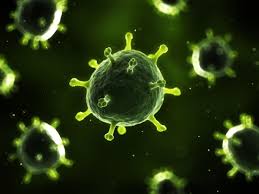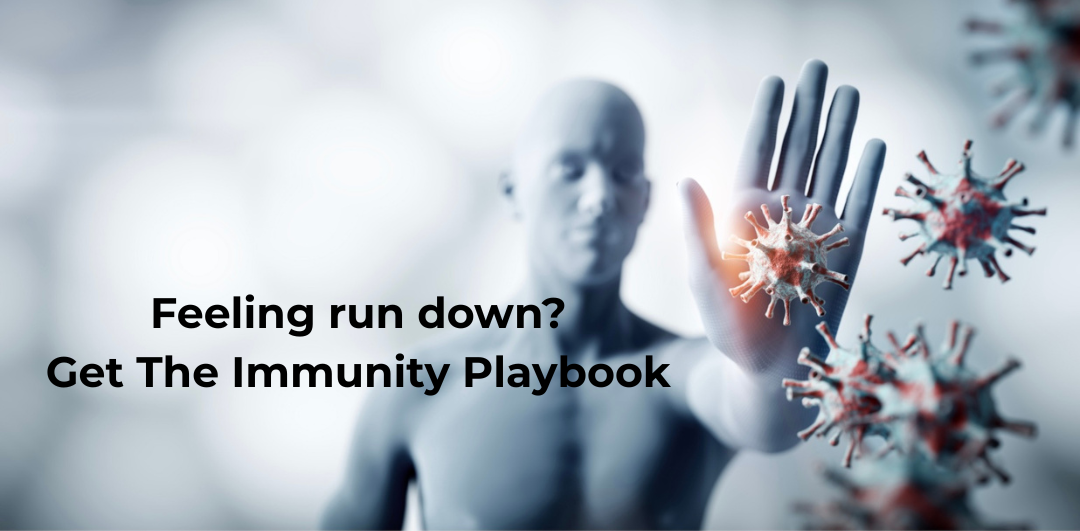Boost Your Immune System & Prevent Colds and Viruses
May 29, 2020
There’s a lot of buzz out there right now about the coronavirus (COVID-19). It’s finally reached the level of a pandemic (which simply means “an outbreak of a new pathogen that spreads easily from person to person across the globe” not necessarily that it’s deadly; you may remember that the World Health Organization declared a flu pandemic in 2009) and is spreading with more and more cases being reported in the United States. Add to that the fact that it’s still cold & flu season and it’s a fabulous idea to both boost your immune system and do what you can to avoid illness. Today we’ll give you the facts about the coronavirus, the difference between a cold and a virus, plus tips for boosting your immune system and staying healthy!
WHAT IS COVID-19?
Coronaviruses are actually a large family of viruses. They can cause anything from the common cold to something like SARS. COVID-19 is simply a new (or novel) coronavirus, meaning a new strain that hasn’t been identified in humans previously. Essentially COVID-19 is a respiratory illness whose symptoms include fever, tiredness, dry cough, aches & pains, nasal congestion, sore throat or runny nose. Symptoms are usually mild and many people who are infected never experience any symptoms at all. The people who have died from this illness are typically either older or have underlying health issues such as heart problems, high blood pressure or diabetes.
DIFFERENCE BETWEEN COLD & VIRUS
According to CDC estimates, there are approximately 30 million cases of the flu per year. Plus, American adults experience 2-3 colds a year. Yikes! But what exactly is the difference between a cold and the flu?
A cold is an acute, self-limiting viral infection of the upper respiratory tract. They can be caused by more than 200 different viruses (including coronaviruses). Because there are so many different viruses that can cause colds, it makes it harder for the body to build up a resistance to them – which is why there’s no “cure” for the common cold. Meanwhile, the flu is a contagious viral respiratory infection causing mild to severe illness. There are only 4 influenza viruses.
Both the cold and the flu are spread via virus-laden airborne droplets when infected people cough or sneeze (so always cover your mouth and nose!). Both can also be picked up by touching an object an infected person has touched (although it’s rarer with the flu) and then touching your mouth, nose, or eyes.

OTC MEDS & ANTIBIOTICS VS COLDS & VIRUSES
When you feel a cold or flu coming on, what’s the first thing you do? If you’re like most people you reach for OTC meds like decongestants, ibuprofen, and antihistamines. Evidence shows, however, that all you’re doing when you do this is suppressing symptoms, not shortening the duration of the illness. And many of these meds come with side effects you don’t want to deal with as they can hurt your heart, gut and immune system!
If you’re not reaching for the OTC meds, then maybe you’re headed to the doctor where you’ll receive antibiotics. Newsflash: Antibiotics are useless against viral infections – they’re intended for bacterial infections. Yet, a surprising amount of doctors still prescribe them for colds and flu. That means that antibiotics are useless against COVID-19 as well.
WAYS TO PREVENT INFECTION
Okay, fine, you may be saying. If OTC meds and antibiotics are useless, then what should I be doing to prevent infection? Let’s start with the basics.
- Wash your hands frequently.
- Maintain at least 3 feet between yourself and anyone who is sneezing or coughing.
- Cover your mouth and nose when you cough or sneeze.
- If you’re not feeling well, don’t go out. Don’t go into work or see friends, etc. so as not to spread anything.
But there are even more things you can do to maintain good health during cold and flu season!
- Get a good night’s sleep.
- Manage your stress with daily acts of self-care.
- Exercise regularly to increase blood flow.
- Skip the sugar! Sugar can suppress your immune system for up to 7 hours after you consume it.
- Eat plenty of fresh veggies and fruit plus nuts & seeds.
- Skip the soda, juice, and coffee and drink warm teas and plenty of water. Plus, start your day off with a glass of lemon water.
- Add some fresh garlic to your diet! It is antiviral, antibacterial, anti-parasitical and anti-fungal.
- 80% of your immune system lays in your digestive track. Invest in a good probiotic!
WAYS TO BOOST YOUR IMMUNE SYSTEM AND SPEED UP RECOVERY NATURALLY
There are a host of ways that you can boost your immune system naturally or help speed up recovery from colds and flus naturally. The best part? They’re all easy to incorporate into your lifestyle!
- Honey – honey promotes recovery from viral respiratory infections. In fact, it’s been found to be more effective than dextromethorphan and diphenhydramine, the most common active ingredients in OTC cough medicines, at improving nightly cough and sleep quality in children with upper respiratory infections.
- Echinacea – you’re probably familiar with the use of echinacea when it comes to ill health. Native Americans used it to treat severe infections and several clinical trials have proven its anti-infective properties. In fact, one clinical trial found echinacea to be just as effective as Tamiflu for the early treatment of influenza viruses!
- Elderberry – elderberry extracts alleviate cold and flu symptoms and can significantly shorten the duration of illness by two to four days. Take elderberry syrup or lozenges until symptoms abate.

- Ginger – ginger is a key ingredient in traditional Chinese and Japanese herbal formulas designed for treating the common cold. Scientific research indicates that fresh ginger may have antiviral activity against certain viruses that infect the respiratory system.
- Licorice root – no, don’t go out and get a bag of licorice! Instead, you’ll want a tincture or capsules. Licorice root contains Glycyrrhizin can inhibit the replication of the influenza virus while also reducing virus-associated inflammation.
- Selenium – selenium helps to balance and regulate the immune system and is crucial in optimizing your defenses against cold and flu viruses. In fact, a deficiency of selenium has been found to cause the flu virus to mutate to a more virulent form.
- Vitamins A & D – these vitamins work synergistically to support your immune health. Your resistance or susceptibility to the flu appears to be at least partially dependent on the ratio of Vitamin D to Vitamin A in the body!
- Vitamin C – when we’re challenged with a viral infection, our body’s need for Vitamin C can rise dramatically and Vitamin C has been shown to be one of the most potent anti-viral agents, particularly for influenza. Extra doses of Vitamin C taken at the onset of a cold significantly reduces the duration, plus, the CDC has stated that combining a lifestyle with regular exercise and regular Vitamin C supplementation may ward off cold and flu viruses Regular Vitamin C also includes the benefits of helping maintain skin & bones, helping the body absorb iron, lowering the risk of heart disease & helping with high blood pressure, and promotion of wound healing! While Vitamin C is not considered a CURE for colds & flu, it can help strengthen your immune system which results in a lower risk for illness or a quicker recovery.

- Vitamin E- this vitamin is a powerful antioxidant that helps the body fight off infection!
- Zinc – zinc is an immune-boosting nutrient that a lot of people don’t get enough of. Clinical trials have shown that zinc administered within the first 24 hours of a cold can significantly reduce the duration and severity of symptoms.
IN SUMMARY
While the coronavirus may seem scary right now and colds + the flu may seem abundant, there’s actually a lot you can do to keep yourself healthy. If you want to learn even more tips for staying well right now, reach out to me and I can help. Or try our Immune Kit – with its specific combination of immune-boosting ingredients —The Immune Kit: Vitamin C, D & Wellmune, in Isotonic form, will not only provide maximum absorption but will also prime the natural immune response.


